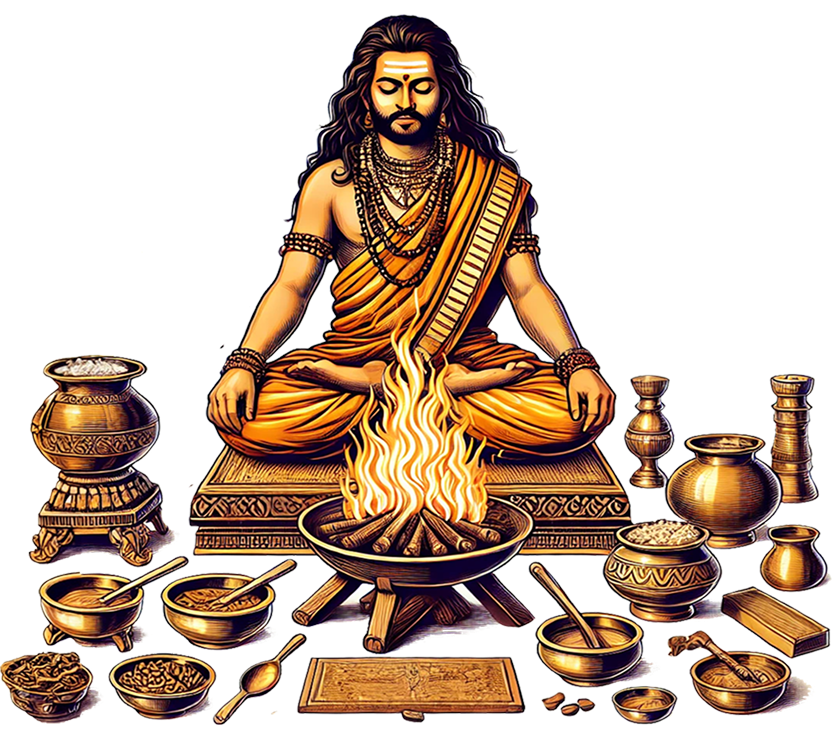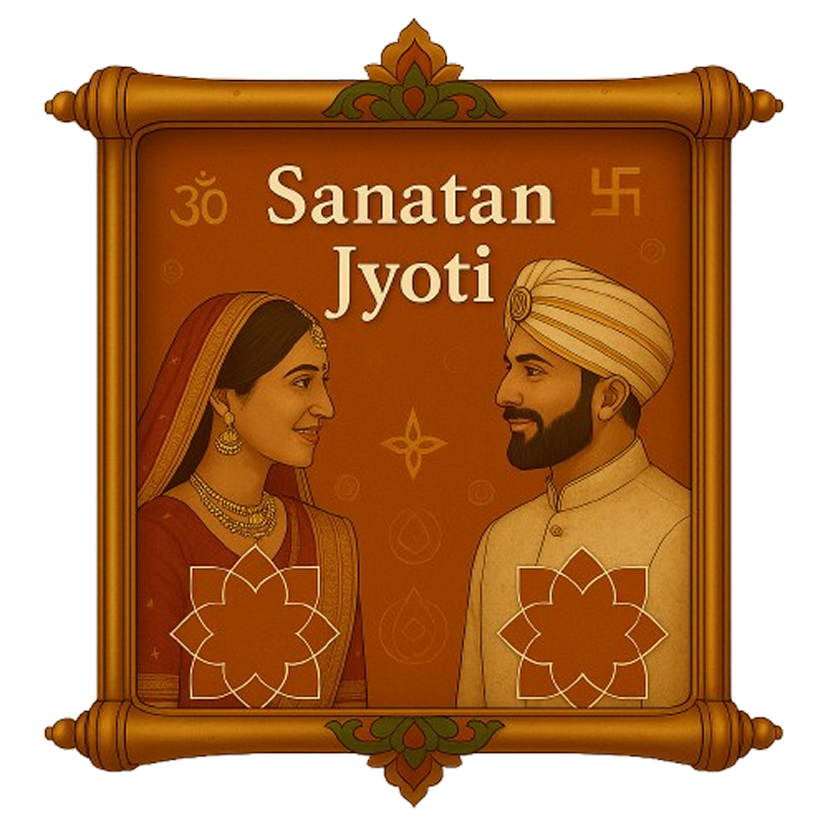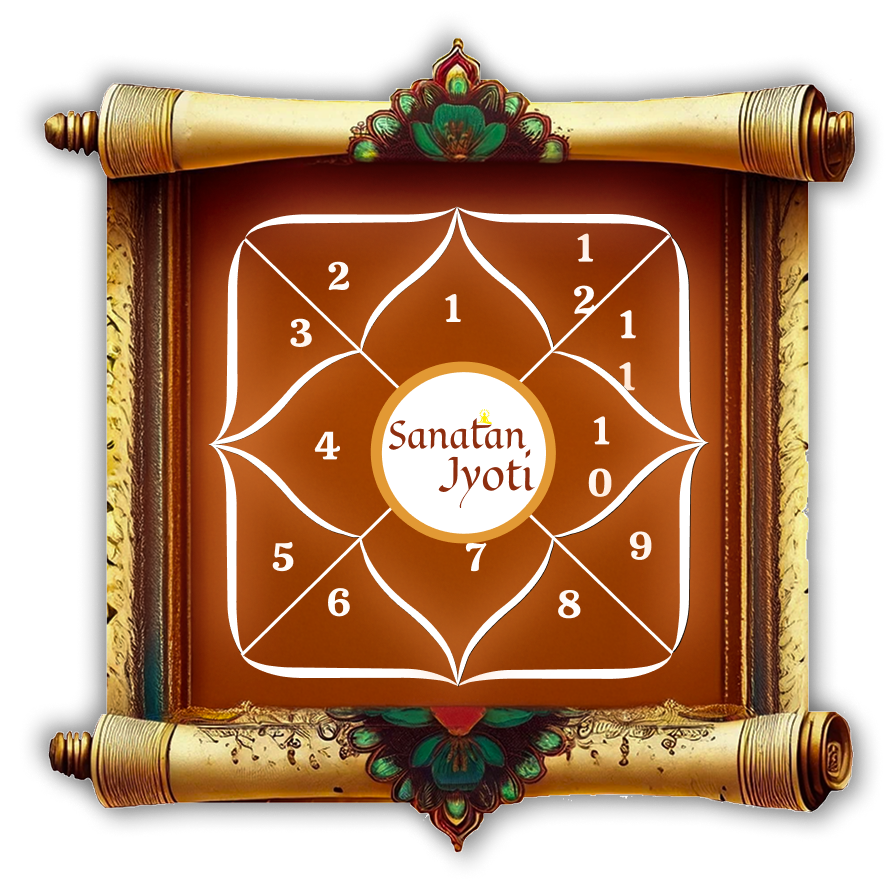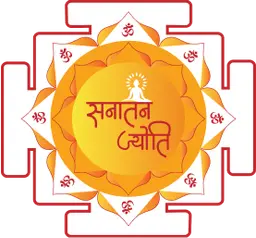





Shravan Putrada Ekadashi 2025
In Sanatan Dharma, the Ekadashi tithi is considered extremely sacred and significant for the worship of Lord Vishnu. Each Ekadashi holds a unique spiritual importance and offers specific benefits that provide devotees with opportunities for spiritual upliftment and fulfillment of desires. Among all these Ekadashis, Putrada Ekadashi, which falls during the Shukla Paksha of the month of Shravan, holds special significance—especially for couples who desire progeny. The name 'Putrada' itself clearly reflects its primary purpose—meaning "the giver of sons" or "the one who blesses with children."
This fast is not limited to the attainment of children alone, but is also believed to bring happiness, peace, and prosperity in life.
What is Shravan Putrada Ekadashi?
The Ekadashi that falls in the Shukla Paksha (waxing phase) of the month of Shravan is known as Putrada Ekadashi. Since it occurs during the month of Shravan, it is specifically referred to as Shravan Putrada Ekadashi. The term 'Putrada' literally means "the one who grants sons", and this fast holds the greatest significance for couples who are deprived of the joy of parenthood; it is believed to bless them with the boon of progeny.It is important to understand that Putrada Ekadashi comes twice in a year—once during the Shukla Paksha of Shravan month (Shravan Putrada Ekadashi), and once during the Shukla Paksha of Paush month (Paush Putrada Ekadashi). According to religious beliefs, both these Ekadashis hold equal importance and are considered beneficial for those who wish to have children. This dual occurrence provides devotees with two opportunities in a year to observe this sacred fast as per their faith and convenience.
Date and Timing of Shravan Putrada Ekadashi 2025
The fast of Putrada Ekadashi will be observed on 5th August 2025.
- Ekadashi Tithi Begins: 4th August at 11:44 A.M
- Ekadashi Tithi Ends: 5th August at 1:13 P.M
- Vrat Parana (Breaking the Fast): On 6th August 2025, after sunrise, one should perform the worship of Lord Vishnu and offer charity as per convenience before breaking the fast.
Story of Shravan Putrada Ekadashi
Every year, devotees observe the fast of Putrada Ekadashi, which is considered a sacred vrat believed to bless one with the joy of offspring.Long ago, during the beginning of the Dwapar Yuga, there was a king named Mahijit who ruled in the city of Mahishmati Pur. Though he was a noble and just ruler, he was childless, and thus, despite his prosperity, his kingdom did not bring him peace. As he grew older, worry consumed him. One day, he gathered his people and said:
"O citizens! In this life, I have committed no sin. I have never hoarded wealth through injustice. I have never taken the property of Brahmins or gods. I have cared for my subjects as a father does his children. I have ruled the earth through dharma and punished the wicked—even if they were like brothers or sons to me. I have always respected virtuous men and have not harbored hatred toward anyone. Then what is the reason that I remain childless to this day? Please help me find the answer." Hearing this, the citizens, along with priests and Brahmins, earnestly sought the king's welfare and ventured deep into the forest. Wandering through sacred groves and hermitages, they eventually encountered the great sage Lomash Muni. Lomash was a highly learned, long-lived, and radiant sage, knowledgeable in the essence of dharma and all scriptures. His body was covered with hair, and his name came from the fact that a single hair (lom) would fall off only after the passage of a kalpa. He had divine brilliance, much like Brahma himself, and was aware of the events of all three times—past, present, and future. Upon seeing him, the people were overjoyed. Approaching them, Lomash Muni asked, "Why have you all come here? Tell me the reason for your visit. I shall certainly do what is in your best interest." The people replied, "O revered one! Our king, Mahijit, has no child. We are his loyal subjects, nurtured like sons. Seeing him suffer, we too are in sorrow. We have come here with a firm resolve to perform penance. It is by divine fortune that we have been blessed with your darshan. The darshan of great souls brings fulfillment to all human endeavors. O sage, please instruct us on a way that will bless our king with a son." Hearing their words, Lomash Muni entered a meditative trance for a short while. Then, realizing the king's past life, he said: "O people, listen. In his previous birth, King Mahijit was a poor Vaishya who made his living through trade, wandering from village to village. One day, during the Shukla Paksha of Jyeshtha month, on the tithi of Dashami, as the scorching midday sun blazed, he reached the outskirts of a village and saw a stepwell filled with water. As he approached to drink, a cow, accompanied by her calf, also arrived there, parched and distressed by the heat. As the cow began to drink, the Vaishya cruelly drove her away to drink the water himself. Because of this sinful act—denying water to a thirsty cow—he has taken birth in this life as a king but remains childless. His past merits have granted him a thornless and prosperous kingdom, but the curse of that deed has left him without progeny.” The people asked, "O sage! We have heard in the Puranas that sins can be destroyed through virtuous deeds. Please instruct us on a meritorious act that will cleanse this sin." Lomash Muni said, "O people! The Ekadashi that falls in the Shukla Paksha of Shravan month is famous as Putrada Ekadashi. It fulfills all desires. Observe this fast sincerely."
Hearing this, the citizens respectfully bowed to the sage and returned to the kingdom. They then observed the Putrada Ekadashi fast with full devotion, kept vigil at night as per the proper rituals, and dedicated the pure merit of their vrat to their king.
Soon after, the queen conceived, and at the appointed time, gave birth to a strong and virtuous son. Simply listening to the glory of this fast liberates one from sin. It blesses one with happiness in this world and grants heavenly abode in the next.
Therefore, O King! One must certainly observe the Putrada Ekadashi fast. Those who observe it with a focused mind are blessed with sons in this life and attain moksha in the afterlife. Even reading or listening to the greatness of this vrat bestows the fruit equal to performing an Agnishtoma Yajna.
Vrat Vidhi (Ritual Method) of Shravan Putrada Ekadashi
Scriptural Procedure:On the auspicious day of Dashami during the Shukla Paksha of Shravan month, one should wake up early in the morning with a devoted heart and take a ritual bath. Then, after another bath around midday, eat only once with a focused and calm mind. Sleep on the floor at night.
At the end of the night, on Ekadashi tithi, after completing daily routines and bathing again, take a vow to observe the fast by reciting the following mantra with devotion:
Shvo Bhokshaye Bhavachyut in Pundarikaksha Sharanam.
"O lotus-eyed Lord Narayan! Today I will remain without food, abstaining from all pleasures. I shall eat tomorrow. O Achyuta, give me refuge."
After this, worship Lord Harikesh with incense, sandalwood, and other offerings. Spend the night in vigil near the deity, singing hymns and devotional songs. On Dwadashi (the next day), after sunrise, once again worship Lord Hari with devotion. Then, feed Brahmins respectfully, and finally, sit silently with family—brothers, relatives, sons, and grandsons—and take your meal, thereby completing the vrat.
Special Guidelines for Women- Women observing the fast who are pregnant should follow a phalahar (fruit-based diet) and must ensure adequate water intake.
- Women who are menstruating should not observe the fast; instead, they should simply remember and meditate upon Lord Vishnu.
- Before beginning the fast, take a clear and auspicious vow in your heart with the desire for progeny.
- During the worship, wear yellow clothes, and never offer bhog to Lord Vishnu without Tulsi leaves.
Benefits of Shravan Putrada Ekadashi
The benefits of this vrat are not limited to the attainment of children alone. It serves as a comprehensive spiritual practice that bestows several other spiritual and material advantages to the devotees:
- Progress and Longevity of Children: This fast is observed for the long life, good health, happiness, prosperity, and bright future of one's children. It helps remove all concerns and problems related to offspring.
- Peace, Happiness, and Prosperity in Life: Observing Shravan Putrada Ekadashi with full devotion brings lasting peace, happiness, and prosperity into one's life.
- Financial Gains and Good Health: This vrat is also considered helpful in overcoming financial hardships, attaining wealth, and maintaining physical well-being.
- Liberation from Sins and Attainment of Moksha: It is believed to free one from sins accumulated over many lifetimes and paves the path toward moksha (liberation). It grants merit equivalent to performing a Vajapeya Yajna or cow donation (Godaan).
- Mental and Physical Wellness: Regular observance of Ekadashi helps calm the restless mind, balances hormonal issues, and aids in overcoming mental health challenges. This reflects how ancient religious practices were also aligned with holistic well-being, addressing both spiritual and psychological health.
Puja Vidhi (Worship Method) of Shravan Putrada Ekadashi (as per the Katha)
Shravan Putrada Ekadashi is a highly sacred and rewarding observance dedicated to Lord Shri Hari Vishnu. When performed with proper rituals, it bestows the blessings of progeny, family prosperity, and spiritual upliftment. The observance of this vrat begins from the Dashami tithi itself, and it concludes with the Parana (breaking of the fast) on Dwadashi tithi.
Beginning of the Vrat: Preparations on Dashami Tithi- From the evening of Dashami tithi, the observer should consume only satvik and grain-free food.
- Begin practicing brahmacharya (celibacy), self-restraint, silence, and meditation from this day.
- Sleep on the floor at night to purify both body and mind.
- Morning Rituals
- Wake up before sunrise.
- Add Gangajal, sesame seeds, and amla to your bath water—this symbolizes spiritual and physical purification.
- Dress and Cleanliness
- After bathing, wear yellow clothes.
- Sprinkle Gangajal throughout the house.
- Draw a Swastik at the entrance with turmeric.
- Sankalp (Vow)
- Meditate on Lord Shri Hari while holding yellow flowers and akshat (unbroken rice) in your hand.
- Take the vow with your desire (especially for progeny) in mind.
- If the vrat is being observed for childbearing, both husband and wife should take the vow together.
- Offering Arghya to the Sun
- Offer water to Surya Narayan, mixed with roli, jaggery, and red flowers.
- Establishing the Puja Altar
- Spread a yellow cloth on a clean platform and install the idol or picture of Lord Vishnu, Mother Lakshmi and child form of Shri Krishna.
- Abhishek and Decoration
- Perform abhishek of Lord Vishnu with Gangajal and Panchamrit.
- Dress the deity in yellow clothes and offer Tulsi leaves.
- Offer sixteen adornments (Solah Shringar) to Goddess Lakshmi.
- Present all worship items with devotion.
- Items to Offer:
- Yellow fruits, yellow flowers, sesame seeds, tulsi, mango leaves, panchmeva (five dry fruits), coconut, betel nut, lamp, incense, yellow sandalwood, kumkum, kheer, makhane, ber, clove, betel leaves, etc.
- Do not offer bhog to Lord Vishnu without Tulsi leaves.
- Mantra Chanting and Vrat Katha
- Chant Lord Vishnu's mantra: "Om Namo Bhagavate Vasudevaya"
- Listen to or read the Putrada Ekadashi Katha — it greatly enhances the merit and result of the vrat.
- Aarti and Prasad Distribution
- Perform aarti of Lord Vishnu, Goddess Lakshmi, and Ekadashi Mata.
- Distribute the offered bhog as prasad to family members and devotees.
- Night Vigil and Devotional Singing
- Stay awake through the night, sing bhajans, and meditate on the Lord.
- This vigil symbolizes penance, discipline, and inner purification.
- Vrat Parana Vidhi (on Dwadashi Tithi)
- The next morning (Dwadashi), bathe again and perform worship of Lord Vishnu.
- Feed Brahmins and give charity as per your capacity.
- If Brahmins are not available, feed cows, the poor, or the needy.
- Only then break your fast—never do Parana without giving daan (charity).
- Best Time for Parana
- Paran is prohibited before sunrise or soon after in the afternoon.
Mantra Chanting on Shravan Putrada Ekadashi
Mantra chanting is an essential part of the Ekadashi vrat, helping to focus the mind, attract positive energy, and receive divine blessings. For the desire of progeny, specific mantras are chanted, which are considered extremely powerful and effective.
Santaan Gopal MantraThis mantra is especially significant and effective for couples desiring children. It is recommended that both husband and wife chant this mantra together to enhance its power and effectiveness. The mantra is dedicated to the child form of Lord Shri Krishna, who is regarded as the divine giver of children.
Mantra: Om Shri Hreem Kleem Glaun Devkisut Govind Vasudev Jagatpate Tanayam Krishna Tvamaham Sharanam Gatah in the body.
Chanting the Santaan Gopal Stotra is not limited to Ekadashi alone; one can take a vow to recite it daily for 40 days. This greatly amplifies its effects and emphasizes that for deep and desired results—such as the blessing of a child—continuous and long-term devotion is more powerful than a one-time ritual. It highlights the importance of consistent effort, discipline, and unwavering dedication in spiritual practice.
At the very least, chant this mantra once in the morning and evening on Ekadashi day.
Significance of Shravan Putrada Ekadashi
The Shravan Putrada Ekadashi Vrat is regarded as extremely sacred and meritorious in Sanatan Dharma. This vrat is especially observed for receiving the blessings of children, for peace from past sins, and to attain the grace of Lord Vishnu. In 2025, this Ekadashi will fall on 5th August, during the holy month of Shravan, which adds to its religious and spiritual importance.
Religious Importance of Shravan Putrada Ekadashi
- This vrat is considered highly beneficial for couples seeking progeny.
- Observing the fast and performing puja with proper rituals on this day increases the possibility of childbirth.
- It removes sins from previous lives, eliminates doshas (flaws) related to children, and brings relief from mental distress.
- Worship of Lord Vishnu in the month of Shravan is especially fruitful, and Putrada Ekadashi is its most potent form.
- The vrat promotes spiritual purification, mental focus, and harmony within the family.
- Observing the fast grants moksha (liberation), great merit (punya), and the supreme blessings of the Lord.
Frequently Asked Questions (FAQ) about Shravan Putrada Ekadashi
1. In which states is Shravan Putrada Ekadashi celebrated?
- Uttar Pradesh – Especially in Vrindavan, Mathura, and Kashi, with grand worship of Lord Vishnu and Krishna.
- Bihar – Great importance is given to Ekadashi fasting, especially for progeny.
- Madhya Pradesh – Traditionally observed in religious families for child blessings.
- Rajasthan – Devotees wear yellow clothes and worship Lord Vishnu.
- Uttarakhand – Observed with reverence in Char Dham regions and hilly areas.
- Maharashtra – Fasting, devotional singing, and story recitation are common.
- Gujarat – Vishnu devotees follow traditional rituals.
- Karnataka & Andhra Pradesh – In South India too, it is observed by Vishnu devotees as "Putrada Ekadashi".
Shravan Putrada Ekadashi is a pan-Indian vrat, observed across North, Central, and South India with deep devotion to Lord Vishnu and the wish for progeny.
2. Why is Shravan Putrada Ekadashi Puja observed?
The puja is mainly performed to seek blessings for children. This fast is believed to grant child happiness and increase family prosperity. Worship of Lord Vishnu on this day destroys sins and brings merit. It is also believed to liberate from past-life doshas and is a supreme path for inner purification and divine grace.
3. What should one do during Shravan Putrada Ekadashi Puja?
- Begin with satvik living, self-restraint, and celibacy from the night of Dashami.
- Wake up during Brahma Muhurat on Ekadashi and bathe with water mixed with Gangajal.
- Wear yellow clothes and purify the house and puja area.
- Worship Lord Vishnu and Goddess Lakshmi with full devotion.
- Perform abhishek with Panchamrit and offer bhog with Tulsi leaves.
- Read or listen to the Putrada Ekadashi Vrat Katha and chant Vishnu mantras.
- Stay awake at night with bhajans and kirtan.
- On Dwadashi, perform daan and feed Brahmins before breaking the fast.
4. How to perform Shravan Putrada Ekadashi Puja at home?
- Begin with satvik food and celibacy from Dashami.
- On Ekadashi, bathe before sunrise and wear yellow clothes.
- Clean the puja space and sprinkle Gangajal.
- Place a yellow cloth on a chowki and install the idol or photo of Lord Vishnu and Lakshmi.
- Perform abhishek with Gangajal and Panchamrit, offer Tulsi leaves, fruits, and sweets.
- Chant Vishnu mantras and read/listen to the Vrat Katha.
- Stay awake with devotional songs at night.
- On Dwadashi, feed Brahmins or the needy and then break the fast.
5. How to perform Shravan Putrada Ekadashi Puja (step-by-step)?
- Wake up in Brahma Muhurat, bathe and wear clean yellow clothes.
- Purify the puja area with Gangajal, place a yellow cloth on a chowki.
- Install idols/photos of Lord Vishnu, Lakshmi, and child Krishna.
- Perform abhishek with Panchamrit and Gangajal. Offer Tulsi leaves, yellow flowers, fruits, and sweets.
- Take a vow with the desire for a child and chant Vishnu mantras.
- Read Putrada Ekadashi Katha and perform aarti.
- Stay awake at night with bhajans and kirtan.
- On Dwadashi, do the Parana after feeding Brahmins.
- For fasting, eat kheer, makhana, milk, fruits, sweet potatoes, water chestnut, sabudana, etc.
- Pregnant women should follow phalahar and drink enough water.
6. When is Shravan Putrada Ekadashi in 2025?
Shravan Putrada Ekadashi will be celebrated on 5th August (Tuesday) in the year 2025. According to the Panchang, Ekadashi Tithi will start on 4th August 2025 at 11:44 am and will end on 5th August 2025 at 1:13 pm. Since Udaya Tithi falls on 5th August, fast will be observed and Puja Vidhi will be performed on this day.
7. What should not be done on Shravan Putrada Ekadashi?
- Avoid rice, grains, and tamasic (impure) food.
- Refrain from lying, anger, and criticism.
- Do not cut hair, nails, or shave.
- Sleeping during the day reduces the vrat's merit.
- Avoid harsh speech or insulting others.
- Stay away from luxury and indulgence.
- Avoid laziness or negligence in puja and fasting.
8. What should be done on Shravan Putrada Ekadashi?
- Wake up early and bathe with water mixed with Gangajal.
- Wear clean clothes and purify your home and puja space.
- Worship Lord Vishnu and Goddess Lakshmi with proper rituals.
- Offer Tulsi leaves, yellow flowers, fruits, and sweets.
- Take a vow especially for child blessings.
- Read or listen to the Putrada Ekadashi Katha.
- Chant Vishnu mantras, perform bhajans and keep vigil at night.
- On Dwadashi, perform daan and feed Brahmins or the needy before breaking the fast.
If you desire progeny, family harmony, and Lord Vishnu's grace, observing the Shravan Putrada Ekadashi vrat can bring both spiritual and worldly blessings into your life.






